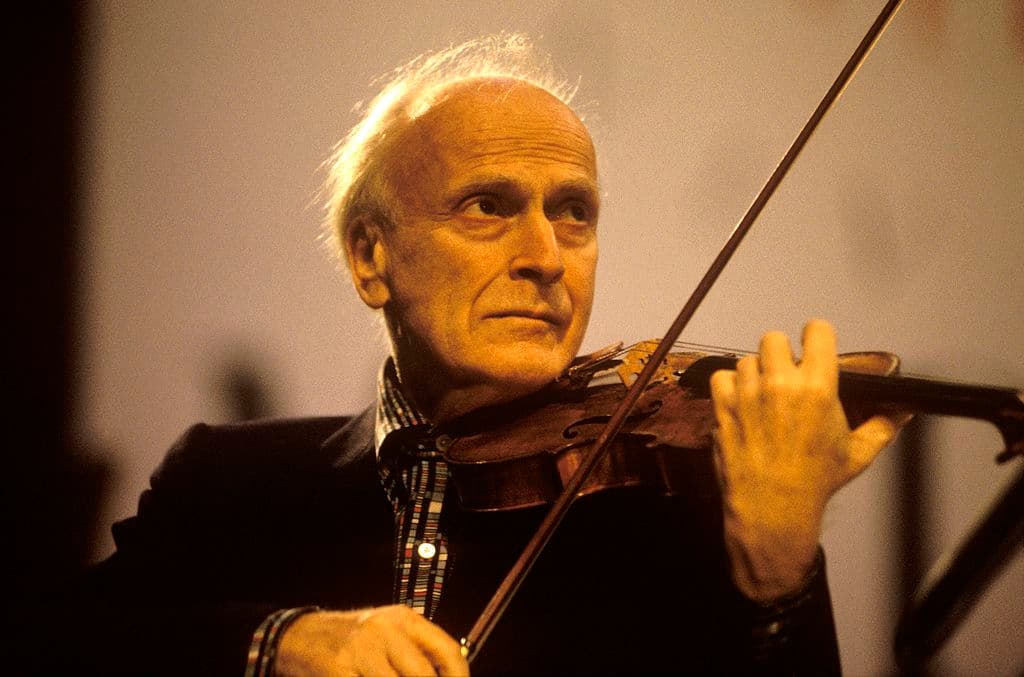Poem of the Day: ‘The Touch of the Master’s Hand’
Myra Brooks Welch might look like a candidate for rediscovery in these days that personal characteristics of the artist are taken as somehow bearing upon the worth of the art.

To be a critic — a good one, a serious person seriously thinking about how art works — requires a sympathy for the different modes of any particular art. The first genuine maturing of a critic, the first moment of adulthood, comes when we can fully recognize the greatness of a work of art in a form we detest. This is more than an ability to say, “Good art of its kind.” It’s an ability to say, “Good art, even though it makes me want to vomit.”
We could talk here of the failure of criticism in recent years to defend everything from such movies as “The Birth of a Nation” to such poems as Alexander Pope’s “The Rape of the Lock,” all subject to woke efforts at cancelling. The failure of critical sympathy, however, extends much further back. The rise of high modernism brought us such great poetic work as T.S. Eliot’s, but it also seemed to license a sneer at popular work in sentimental veins. And that’s a shame, for it allowed subsequent generations to forget what made poetry an art form for the masses. As poetry retreated into its little enclaves of the enlightened, its appreciators congratulated themselves on having fewer but better readers.
Bah. Take, as an example of what we lost, something like Myra Brooks Welch’s 1921 “The Touch of the Master’s Hand,” today’s Poem of the Day. No one should call this poetry of the highest kind, but it is not praised or much anthologized these days — simply because it starts with two strikes against it: It was popular, and its themes are religious.
Myra Brooks Welch (1877–1959) might look like a candidate for rediscovery in these days that personal characteristics of the artist are taken as somehow bearing upon the worth of the art. A Californian pacifist, she was confined to a wheelchair, tapping out her poetry on a typewriter with the eraser ends of pencils clutched in her stricken fists. Her pacifism, however, came as part of her membership in the Church of the Brethren (alongside the Mennonites and Quakers, one of the three historic Reformation peace churches). And her illness found its expression in poetry of prayer and Christian endurance. The current tendency to remake poetry into the oppressed identity of the poet can do little with that.
Besides, “The Touch of the Master’s Hand” was popular among the wrong sort of people. And it’s old-fashioned formal verse: five stanzas of ballad meter, four-foot lines alternating with three-foot, rhymed on the short lines. (Here, for example, is a fine recitation of the poem by the actor Ned Beatty on an old television special.)
No line in the poem is great, yet few lines are bad, and it expresses well a memorable literary figure: As an old violin is worth more than people think once a master shows how good an instrument it is, so human beings are worth more than they may think once the Master touches their soul. The failure to grant the poem its small due: That’s a sign of our critical failure — a measure of the lack of intellectual sympathy that is one of the marks of an adult reader.
The Touch of the Master’s Hand
by Myra Brooks Welch
’Twas battered and scarred, and the auctioneer
Thought it scarcely worth his while,
to waste his time on the old violin.
But he held it up with a smile,
“What am I bid, good friends,” he cried.
“Who’ll start the bidding for me?”
“A dollar, a dollar. Then two! Only two?
Two dollars, and who’ll make it three?”
“Three dollars once. And three dollars twice.
And going, and going, . . . ” But no,
From the back of the room a gray-haired man
Came forward and picked up the bow.
And wiping the dust from the old violin
And tightening the loose strings,
He played a melody pure and sweet
As caroling angels sing.
The music ceased and the auctioneer
With a voice that was quiet and low,
Said “What am I bid for the old violin?”
As he held it up with the bow.
“One thousand dollars, and who’ll make it two?
Two thousand dollars, and three!
Three thousand, once, and three thousand twice,
And going, and going, and gone!” said he.
The people cheered, but some of them cried,
“We don’t quite understand
What changed its worth.” Swift came the reply.
“’Twas the touch of the master’s hand.”
And many a man with life out of tune
And battered and scarred with sin,
Is auctioned cheap to the thoughtless crowd,
Much like the old violin.
A mess of pottage, a glass of wine,
A game, and he travels on.
He’s going once, and going twice,
And going, and almost gone.
But the Master comes and the thoughtless crowd
Never can quite understand
The worth of a soul, and the change that is wrought,
By the touch of the Master’s hand.
___________________________________________
With “Poem of the Day,” The New York Sun offers a daily portion of verse selected by Joseph Bottum with the help of the North Carolina poet Sally Thomas, the Sun’s associate poetry editor. Tied to the day, or the season, or just individual taste, the poems are drawn from the deep traditions of English verse: the great work of the past, together with the living poets who keep those traditions alive. The goal is always to show that poetry can still serve as a delight to the ear, an instruction to the mind, and a tonic for the soul.
